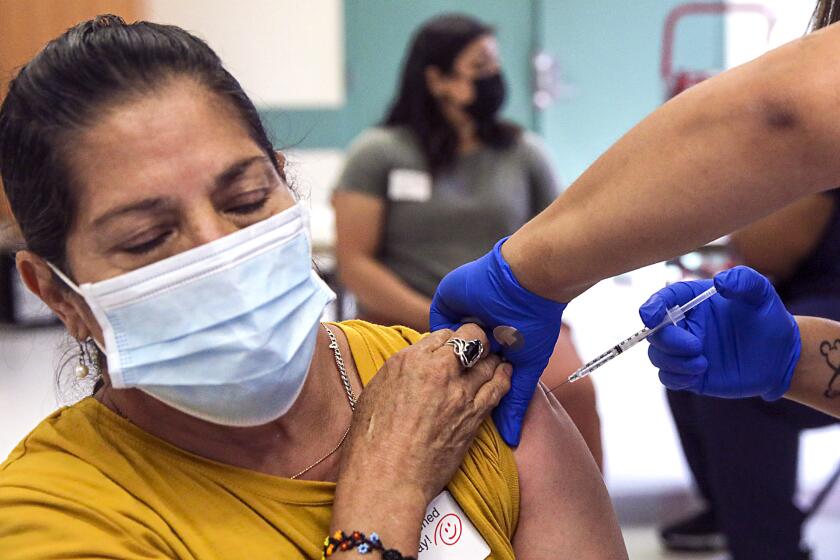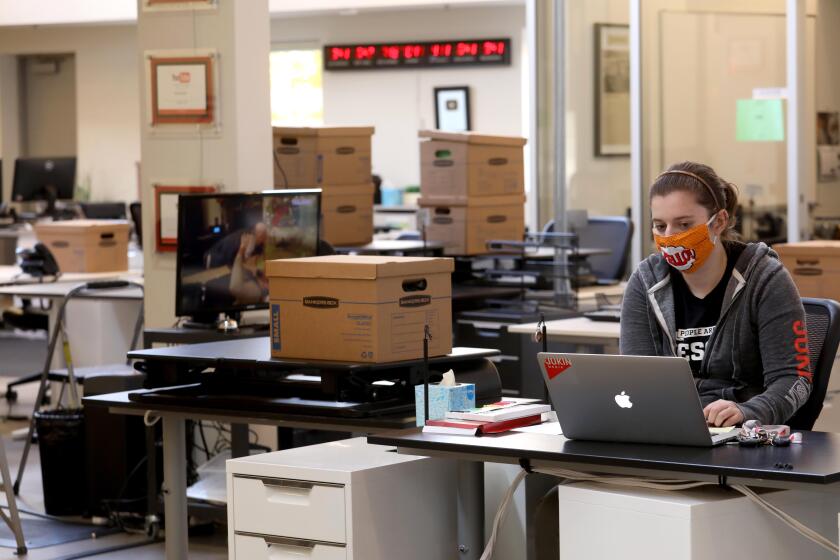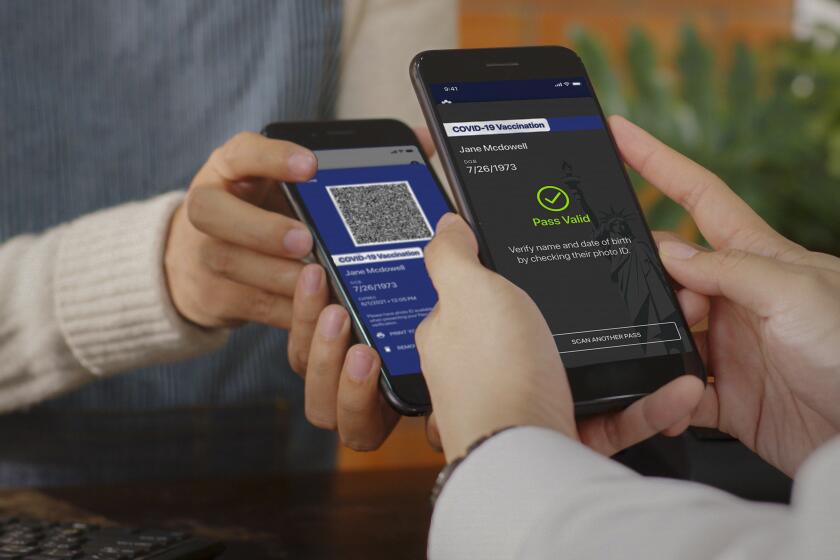What you need to know about California’s new digital vaccine verification

- Share via
California on Friday unveiled a way the public can access digital copies of their COVID-19 vaccination records.
Just don’t call it a passport.
Officials say it’s actually a convenience, an easy way to display the same information listed on the physical cards handed out when someone is inoculated.
“You are not required to obtain a digital COVID-19 vaccine record. It is an optional means to obtain your COVID-19 vaccine information, and is the digital version of your paper vaccine card,” officials wrote in explaining the new system. “It is one of the options to show proof of vaccination. The state will not be implementing a mandatory passport system in California.”
The basics
- The system is accessible through myvaccinerecord.cdph.ca.gov. Once there, residents will be prompted to provide their name, date of birth, and the email address or cellphone number they used when getting their vaccine.
- Residents will then create a four-digit personal identification number. If the submitted information matches an official record, the resident will get a text or email with a link to access a digital copy of their inoculation record, as well as a scannable QR code.
- State officials recommend taking a screenshot to store the vaccine record on a mobile device, or printing out a physical copy and storing it in a safe place.
Californians can now access a digital copy of their COVID-19 vaccination record as part of a new system unveiled by the state, officials said.
When it would be used
While the record may provide a measure of convenience for some, the state has emphasized it’s not a compulsory tool.
Under California’s reopening guidelines that went into effect this week, the only setting where the state might require someone to prove vaccine status as a condition of entry is an indoor event with more than 5,000 people — such as sporting events or a convention. However, in that case, attendees also can submit documentation of a negative coronavirus test to enter.
Proof of vaccination or a negative test is also recommended, though not required, for outdoor events with at least 10,000 attendees.
Some private companies and other institutions have said they will require vaccinations.
San Francisco said this week that workers in hospitals, nursing homes and jails will eventually be required to be fully vaccinated against COVID-19, with limited exceptions.
Though many companies have to this point generally avoided requiring workers to be vaccinated, the University of California and California State University systems have announced they will eventually require COVID-19 vaccinations for all students, faculty and staff on campus properties.
Dozens of colleges nationwide also have announced they will require vaccination for enrollment this fall, including Yale, Princeton, Columbia and, in Los Angeles County, Pomona and Claremont McKenna.
Fully vaccinated employees in most workplaces can now stop wearing masks in their places of employment.
Your physical card
While everyone who’s been inoculated for COVID-19 should have received a white paper card from the Centers for Disease Control and Prevention detailing where and when they got their shots, state officials said an electronic option will give residents an alternative.
Though the California Department of Public Health “recommends that vaccinated Californians keep their paper CDC card in a safe and secure place, we recognize that some people might prefer an electronic version,” state epidemiologist Dr. Erica Pan said in a statement. “And if one of the state’s nearly 20 million vaccinated Californians misplaces their paper card, the digital COVID-19 vaccine record provides a convenient backup.”
The federal government isn’t willing to make a digital pass or app that attests to a person’s vaccination status. Several companies are trying to fill the void.
Troubleshooting
Residents who run into issues accessing the portal should double-check that their information is correct and that they’re using an email address or phone associated with their vaccine record. If problems persist, or if a record is incorrect or incomplete, residents can contact the COVID-19 hotline at (833) 422-4255 or request help online through the virtual assistant at cdph.ca.gov/covidvaccinerecord.
State officials also offered this tip: “If you are a parent or guardian and have created multiple appointments with a single phone number or email, enter the requests one at a time to receive separate links for each vaccine record.”
Privacy
State officials pointed out that residents are required to create a PIN to access their vaccine records, and said only residents can decide how and whether to share that information.
Scanning the QR code also won’t create a copy of the record or allow that information to be stored, officials said.
More to Read
Sign up for Essential California
The most important California stories and recommendations in your inbox every morning.
You may occasionally receive promotional content from the Los Angeles Times.













